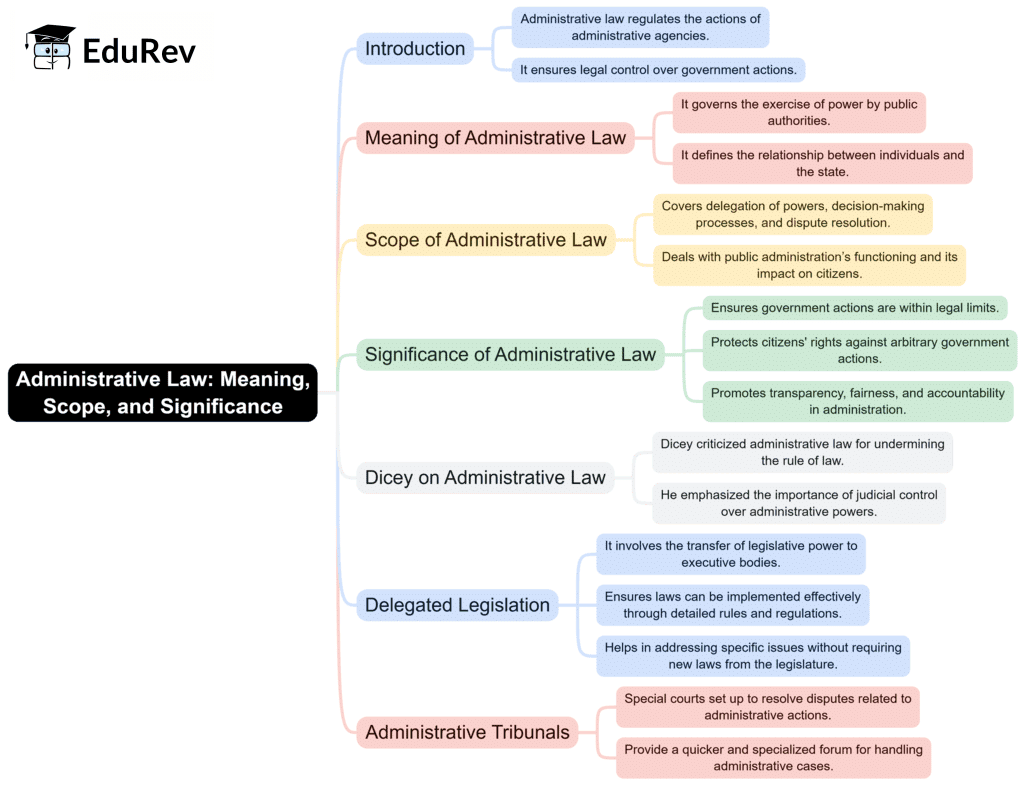UPSC Exam > UPSC Notes > Public Administration Optional for UPSC (Notes) > Mind Map: Administrative Law
Mind Map: Administrative Law | Public Administration Optional for UPSC (Notes) PDF Download

The document Mind Map: Administrative Law | Public Administration Optional for UPSC (Notes) is a part of the UPSC Course Public Administration Optional for UPSC (Notes).
All you need of UPSC at this link: UPSC
|
58 videos|242 docs
|
FAQs on Mind Map: Administrative Law - Public Administration Optional for UPSC (Notes)
| 1. What is the significance of Administrative Law in the Indian legal system? |  |
Ans. Administrative Law plays a crucial role in regulating the powers and duties of administrative agencies in India. It ensures that these agencies act within the law and protects the rights of individuals against arbitrary actions. This branch of law provides mechanisms for review and accountability, ensuring that governmental actions are lawful and just.
| 2. What are the key principles of Natural Justice in Administrative Law? |  |
Ans. The key principles of Natural Justice include the right to a fair hearing and the rule against bias. This means that individuals must be given an opportunity to present their case before a decision is made, and that the decision-makers should not have any personal interest in the outcome. These principles aim to uphold fairness and transparency in administrative proceedings.
| 3. How does the Doctrine of Ultra Vires apply in Administrative Law? |  |
Ans. The Doctrine of Ultra Vires refers to actions taken by administrative agencies that go beyond the powers granted to them by law. If an agency acts beyond its authority, its actions can be declared illegal and void. This doctrine serves as a check on the powers of administrative bodies, ensuring that they operate within the limits set by legislation.
| 4. What are the remedies available under Administrative Law for individuals aggrieved by administrative actions? |  |
Ans. Individuals aggrieved by administrative actions can seek remedies such as judicial review, where courts can review the legality of the actions taken by administrative agencies. Other remedies include filing complaints with ombudsman offices or administrative tribunals designed to address grievances against public authorities.
| 5. How does the Administrative Tribunals Act, 1985 impact Administrative Law in India? |  |
Ans. The Administrative Tribunals Act, 1985 established specialized tribunals to adjudicate disputes related to the recruitment and service conditions of public servants. This act aims to provide a faster and more efficient resolution of administrative disputes, reducing the burden on the regular courts and improving access to justice for individuals facing administrative decisions.
Related Searches
















